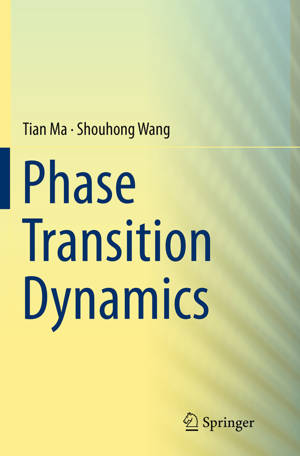
Door een staking bij bpost kan je online bestelling op dit moment iets langer onderweg zijn dan voorzien. Dringend iets nodig? Onze winkels ontvangen jou met open armen!
- Afhalen na 1 uur in een winkel met voorraad
- Gratis thuislevering in België vanaf € 30
- Ruim aanbod met 7 miljoen producten
Door een staking bij bpost kan je online bestelling op dit moment iets langer onderweg zijn dan voorzien. Dringend iets nodig? Onze winkels ontvangen jou met open armen!
- Afhalen na 1 uur in een winkel met voorraad
- Gratis thuislevering in België vanaf € 30
- Ruim aanbod met 7 miljoen producten
Zoeken
€ 139,95
+ 279 punten
Uitvoering
Omschrijving
This book is an introduction to a comprehensive and unified dynamic transition theory for dissipative systems and to applications of the theory to a range of problems in the nonlinear sciences. The main objectives of this book are to introduce a general principle of dynamic transitions for dissipative systems, to establish a systematic dynamic transition theory, and to explore the physical implications of applications of the theory to a range of problems in the nonlinear sciences. The basic philosophy of the theory is to search for a complete set of transition states, and the general principle states that dynamic transitions of all dissipative systems can be classified into three categories: continuous, catastrophic and random. The audience for this book includes advanced graduate students and researchers in mathematics and physics as well as in other related fields.
Specificaties
Betrokkenen
- Auteur(s):
- Uitgeverij:
Inhoud
- Aantal bladzijden:
- 555
- Taal:
- Engels
Eigenschappen
- Productcode (EAN):
- 9781493944125
- Verschijningsdatum:
- 23/08/2016
- Uitvoering:
- Paperback
- Formaat:
- Trade paperback (VS)
- Afmetingen:
- 156 mm x 234 mm
- Gewicht:
- 802 g

Alleen bij Standaard Boekhandel
+ 279 punten op je klantenkaart van Standaard Boekhandel
Beoordelingen
We publiceren alleen reviews die voldoen aan de voorwaarden voor reviews. Bekijk onze voorwaarden voor reviews.











